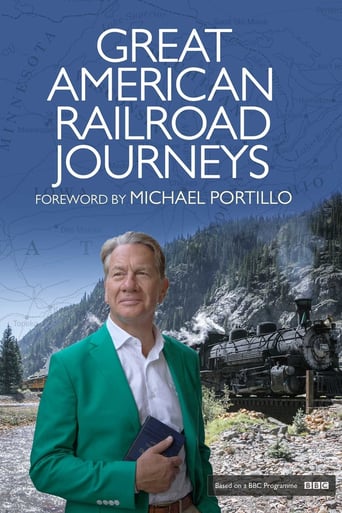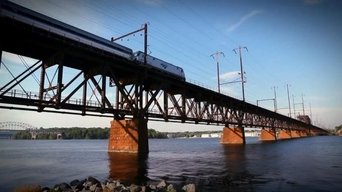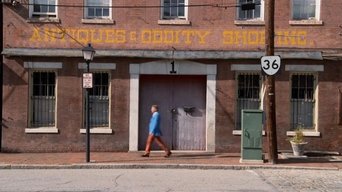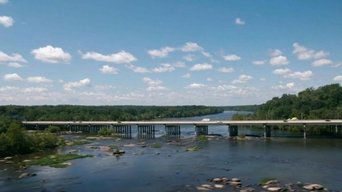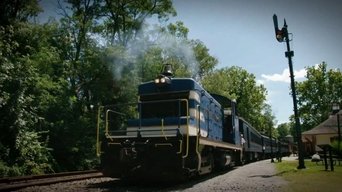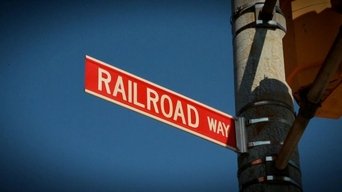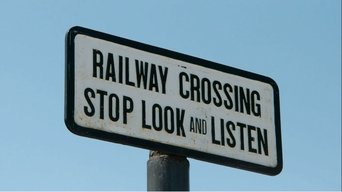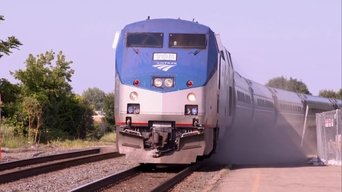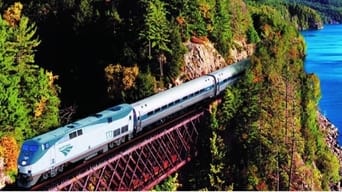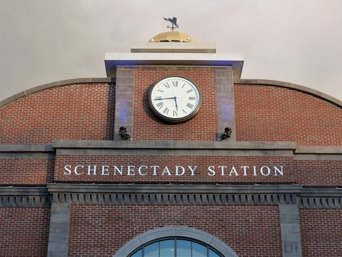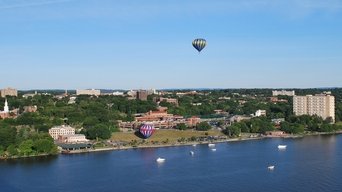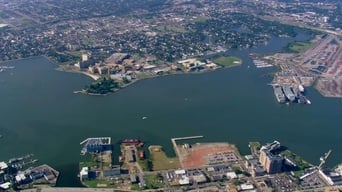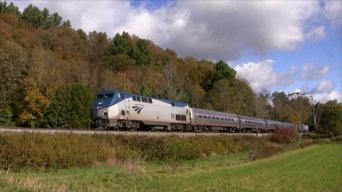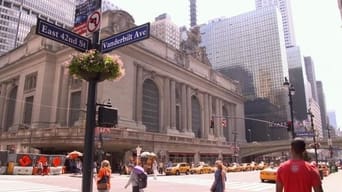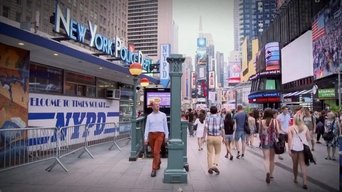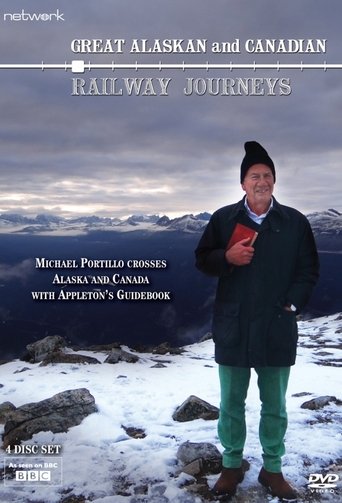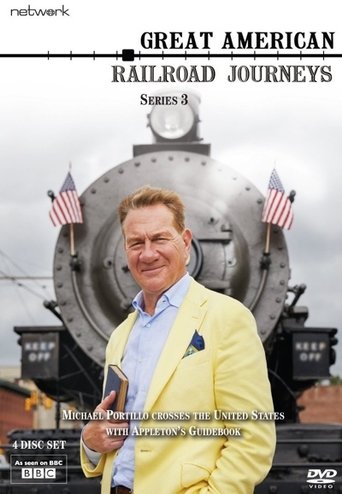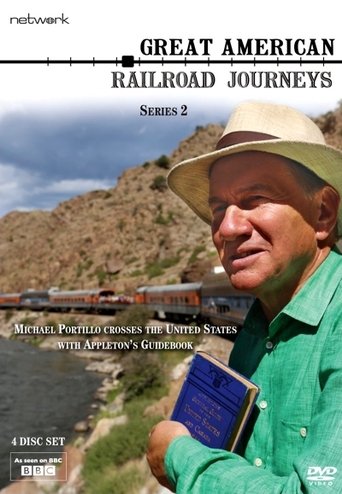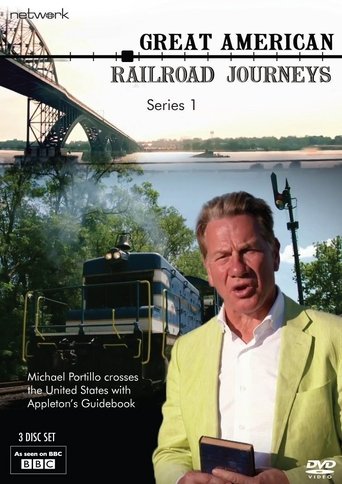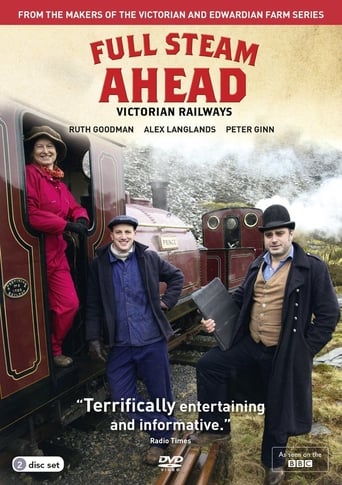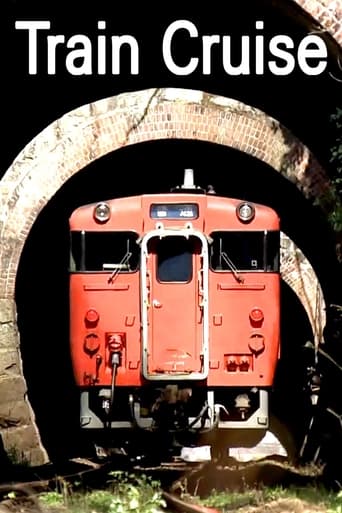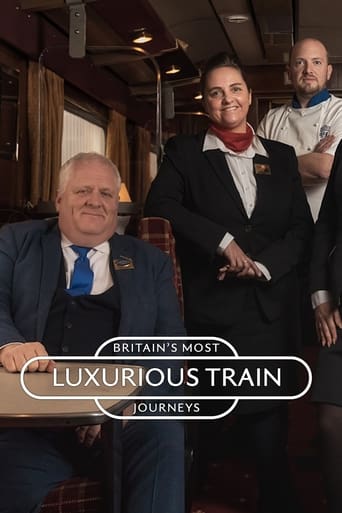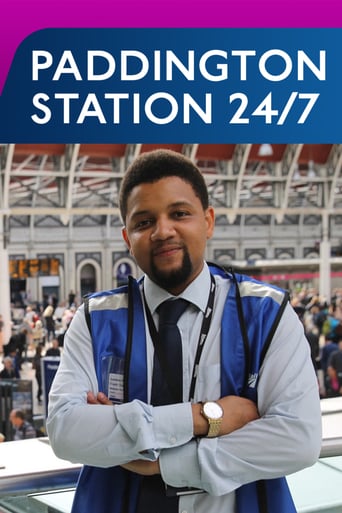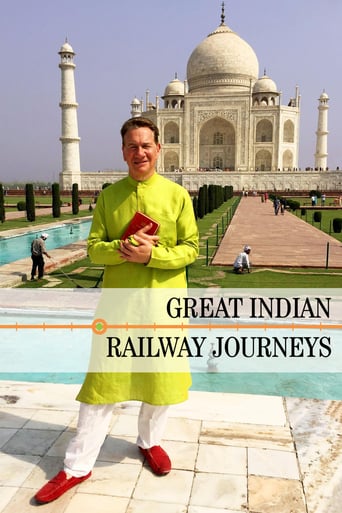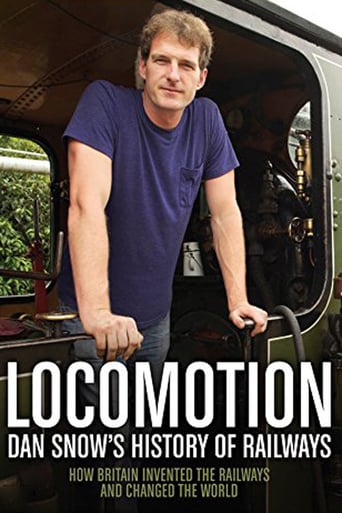Great American Railroad Journeys Season 1
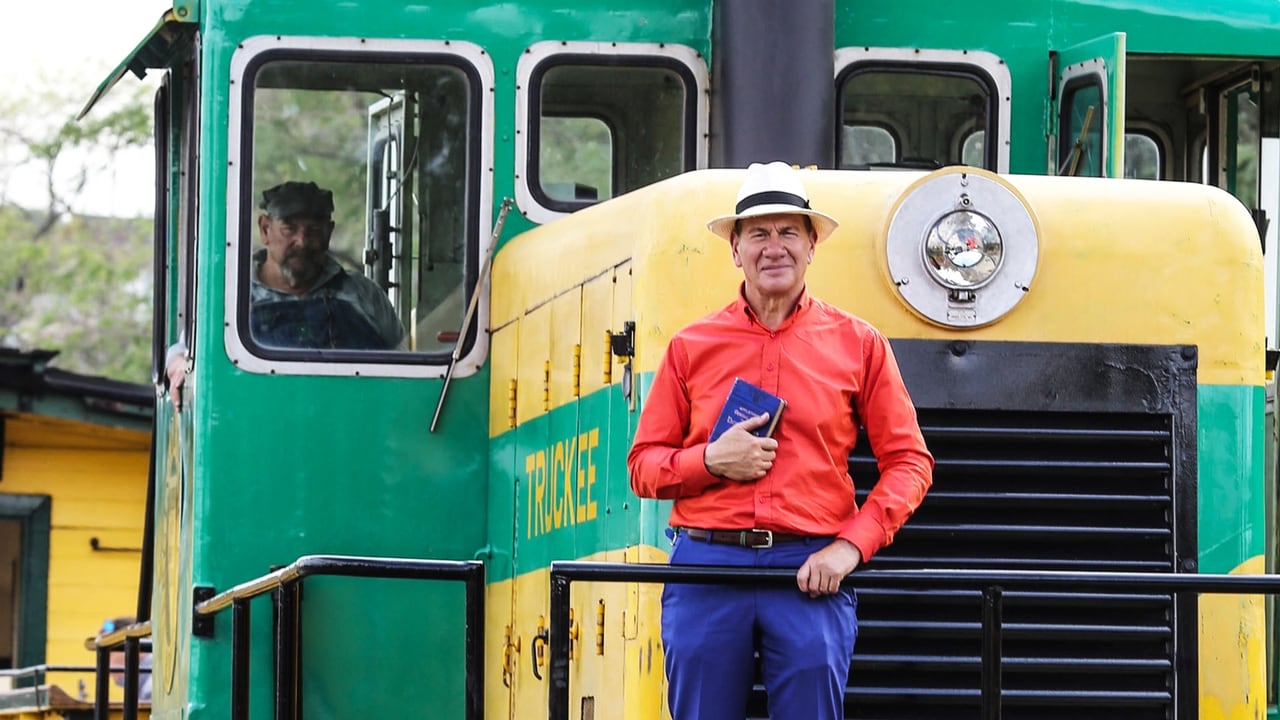
Michael Portillo crosses the Atlantic to ride the railroads of America, armed with Appleton's General Guide to the United States, published in 1879.
Watch NowWith 30 Day Free Trial!
Great American Railroad Journeys
2016 / TV-PG
Michael Portillo crosses the Atlantic to ride the railroads of America, armed with Appleton's General Guide to the United States, published in 1879.
Watch Trailer
With 30 Day Free Trial!
Great American Railroad Journeys Season 1 Full Episode Guide
In Petersburg, Virginia, the choir of the First Baptist Church is in fine voice as Michael discovers how, during the 19th century, coded messages were delivered to slaves who hoped to escape via the so-called Underground Railroad. Michael ploughs his own furrow in a field in colonial Williamsburg, a living history park, where he learns from costumed re-enactors what life was like for both master and slave. It's battle stations in Norfolk, home to the United States Atlantic Fleet, where Michael is invited on board the USS Wisconsin to hear about the first duel fought between iron-clad vessels in 1862 and Britain's role in it. Michael reaches the end of this American journey in Jamestown, the first permanent English settlement in North America, where he finds out about the settlers' grim struggle for survival led by Captain John Smith and Pocahontas.
Michael Portillo arrives in Manassas, scene of two crucial battles during the American Civil War - the first railroad battles in US history. In Fredericksburg, Virginia, he tries his hand at bottling bourbon corn whisky and learns how it became the nation's spirit. In Richmond, a plate of ham and eggs with southern grits sets Michael up for a tour of the Virginia state capitol building, where he learns about the terrible dilemma faced by one of its most famous sons, General Robert E Lee. Charmed by the English heritage of this former colony, Michael puts on his dancing shoes and heads for a cotillion ball, where it seems manners are the name of the game.
On this leg, Michael soaks up some old-school jazz in Washington's U Street neighbourhood, where the big band jazz king, Duke Ellington, was born and began his career. He also grabs a bite at Ben's Chili Bowl, the legendary diner chosen by President Obama for a snack before his inauguration. He follows his guidebook to the United States Naval Observatory, the nation's timekeeper, where he discovers how and why the railroads established four time zones across the continent in 1883. Heading south to Alexandria, Virginia, Michael explores a former slave market and hears how African Americans were bought and sold. He ends this leg in Mount Vernon, the Palladian home of the nation's first president, George Washington, where he gets into a spot of bother at an archaeological dig.
Michael arrives in the nation's capital, Washington DC. He admires its fine public buildings, including the largest library in the world, and discovers how the capital was built from scratch after a political compromise between north and south. At the Bureau of Engraving and Printing, Michael meets the man responsible for engraving the portrait of President Abraham Lincoln on the current five-dollar bill and gets his hands on more money than he has ever held in his life. In the offices of The Washington Post, Michael learns about corruption in the corridors of power and how the newspaper toppled a president. He finishes this leg of his journey in the auditorium of the theatre where, in 1865, President Abraham Lincoln was assassinated.
In Baltimore, home of the first railroad in the United States, the Baltimore and Ohio, he discovers how the first American steam engine, the Tom Thumb, owed much to pioneering British technology. He investigates race relations in the troubled city, taking a drive downtown with a former drug dealer, now a teacher. On the city's beautiful east coast, Michael discovers the impressive star-shaped Fort McHenry and learns how the Star-Spangled Banner national anthem was born. Medics at the city's Johns Hopkins Hospital show Michael how their institution has grown from its 19th-century foundation by the railroad magnate into a world-leading centre for healthcare. And at the city's Lexington Market, Michael learns what gives a Maryland crab cake the edge.
Michael reaches a milestone on his American journey: the boundary between the northern and southern states, known as the Mason-Dixon line. He discovers the origins of what became for black Americans the border between slavery and freedom, in an 18th-century English dispute over land. On the Wilmington and Western Railroad, Michael meets the passenger train Phoebe Snow, created by the railroads at the turn of the 20th century to reassure passengers that clean burning coal wouldn't make their clothes dirty. Michael uncovers the explosive history of gunpowder production in Delaware, begun by a Frenchman, whose chateau still stands. He then takes a boat trip up the Susquehanna River following the route taken by one of the first English settlers, John Smith.
Michael hitches a ride with the Amish in a horse-drawn buggy through rich countryside settled in the 18th century by religiously oppressed Europeans. Charmed by their modest way of life, he watches as they sell their beautiful quilts at auction. In Strasburg, known as Traintown USA, Michael joins the crew of the oldest continuously operated railroad in the United States. After oiling the magnificent engine, he rides on the footplate of the vintage steam locomotive. His last stop on this leg is Gettysburg, the most famous battlefield of the American Civil War, where, in 1863, President Abraham Lincoln made a momentous speech.
Michael embarks on a new railroad journey from the city of brotherly love, Philadelphia, south to the first permanent English colonial settlement in North America, Jamestown. He feasts on a gargantuan Philly cheesesteak, then looks to work off the calories with a run past the city's famous landmarks, in homage to one of Philadelphia's most famous sons, Rocky Balboa. All pumped up, he heads to Pennsylvania University to tackle the football team under the instruction of its fearsome coach. In the cradle of American independence, Michael discovers how, in 1776, liberty was proclaimed throughout the land yet millions remained enslaved. Alone in a cell, Michael reflects on the 19th-century Pennsylvania system of incarceration at the Eastern State Penitentiary before heading to the gambling resort of Atlantic City and its famous boardwalk.
Michael braves the awesome power and drenching spray of Niagara Falls on the Maid of the Mist to share what artists, daredevils and millions of tourists have billed as one of the most spectacular experiences on the planet. Reaching Buffalo, he lunches on the city's famous Buffalo wings and discovers it was once the centre of the world's grain trade. Touring Silo City, Michael learns about the invention which propelled the port of Buffalo into its dominant position - the grain elevator - and how the railroads sealed the deal. Awe-inspiring engineering is revealed at the 12-acre Colonel Ward water-pumping station, the largest construction ever built on the Great Lakes, and capable of delivering 30 million gallons of water per day to the city of Buffalo.
Michael heads west through New York State. He has a lightbulb moment in Schenectady, when he discovers how Thomas Edison's General Electric Company also leads the way in modern rail technology. In Utica, he investigates Lock 20 of 57 along the early 19th-century Erie Canal - 325 miles of waterway which connected the Great Lakes with the Atlantic Coast via the Hudson River. A yellow brick road beckons Michael to Chittenango, where a Kansas farm girl introduces him to a lion, and a tin man. On a hillside near Palmyra, Michael finds out about a farm boy, Joseph Smith, and his Book of Mormon, from one of the 15 million believers who follow his religion today. Further west in Rochester, Michael discovers the story behind another famous 19th-century name still trading today: George Eastman, who launched mass market photography with his Eastman Kodak company.
Michael Portillo continues his railroad journey through New York State following his Appleton's Guide. Beginning in the city of Poughkeepsie, he visits a famous all-female university, alma mater of Jane Fonda and Meryl Streep. He discovers the tumultuous history of the Poughkeepsie-Highland Railroad Bridge and follows the train line up to the Catskill Mountains, admiring its picturesque scenery from an altogether different type of line - a zip wire. Back on safe ground, he discovers that the dramatic landscape inspired artists of the Hudson River School. Arriving in New York's state capital, Albany, he samples a drop of Albany Ale before rubbing shoulders with the State Senator.
Michael follows America's mighty Hudson River north, riding on the United States' national rail carrier service, Amtrak. He learns from Amtrak's police chief about some of the nation's most infamous train robbers, then upriver at Tarrytown, he is spooked by the stories of one of America's greatest writers, Washington Irving, author of Sleepy Hollow. On the east bank of the Hudson, he stops at Garrison, site of many guerrilla battles during the Wars of Independence, where he hears about the greatest turncoat in American history and learns about the many famous military leaders who trained at West Point.
From Manhattan, Michael follows his Appleton's Guide east, travelling on the Long Island Railroad. He begins in Brooklyn, where he learns the incredible story behind the world's first steel suspension bridge. Divided by a common language, Michael struggles to order a pizza before continuing to Queens and the site of an ambitious engineering project that will transform New York City's rail network. Moving east through Long Island, he visits one of the country's most decadent mansions, owned by an oil tycoon known as Mr Monopoly, where he gets into a flap dancing the Charleston, before ending his journey on Long Island's eastern most tip at New York's first lighthouse.
Michael continues his American journey in Manhattan's Lower East Side, where he narrowly avoids a scrap with an historic gang of New York and visits the grim tenement buildings where thousands of the city's immigrants lived and worked. In the West Side, Michael discovers how a once lethal run of track has been transformed into a public park, raised above the city streets. Forsaking the rails for a ferry, Michael heads for Ellis Island, where some 12 million immigrants entered America. Michael is given a privileged tour of the gleaming new transport hub under construction close to the site of Ground Zero.
Michael begins his American odyssey in New York City. Starting at Grand Central Terminal, the 'gateway to the nation', he boards the Manhattan subway system, the busiest rail transit system in the US. His first stop is the Rockefeller Centre, where he gets a bird's eye view of Manhattan Island and learns how about the technology which enabled the city to build up. Portillo heads to the Financial District, where, over a Lobster Newberg, he finds out how the dodgy political dealings of the era's famous industrialists earned them the nickname 'Robber Barons'. He observes their better side at the Metropolitan Museum of Art as he learns that philanthropy helped the city's burgeoning art scene, before finishing his journey midtown, among the bright lights of Broadway.
Free Trial Channels
Seasons


